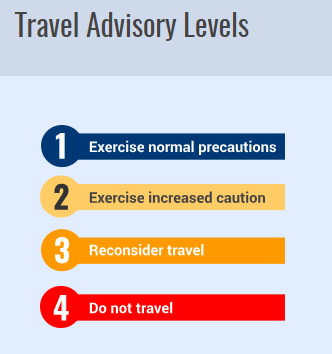Extension and Redesignation of Venezuela for Temporary Protected Status
On September 22, 2023, Secretary of Homeland Security Alejandro N. Mayorkas announced the extension and redesignation of Venezuela for Temporary Protected Status (TPS) for 18 months, due to extraordinary and temporary conditions in Venezuela that prevent individuals from safely returning. This will allow as many as 472,000 migrants from Venezuela to live and work legally in the United States for at least the next 18 months. the United Nations estimates that more than 7.3 million people have fled the political and economic crisis in Venezuela in recent years. TPS grants other benefits to recipients as well and can make some people eligible to obtain permanent immigration benefits. There is more information about TPS available on our TPS Overview Page. The Biden Administration has been facing a great deal of recent criticism from many Democratic State and City leaders, along with the usual suspects in red states, who have been vocal in blaming Biden and his immigration and border policies for the large number of immigrants from South and Central America who have have recently crossed the Mexican border and arrived in New York, Chicago, Philadelphia, and other major cities. The areas that have been receiving the majority of the immigrants who recently crossed the border, such as New York, have had their resources stretched thin and are unable to support the number of people showing up in need of shelter, food, and other basic resources. Extending and redesignating Venezuela allows for those who recently arrived from Venezuela to obtain employment authorization and work, alleviating some of the burden that the recent influx of migration has put on cities and states like New York. This doesn’t solve all the problems, such as the number of new students being enrolled in public schools, most who don’t speak English and require additional resources if they are to catch up to American students of their age. This also only applies to Venezuelans, which make up only a fraction of the hundreds of thousands of migrants who crossed the southern border in 2023 thus far. That said, some believe that this step will still be helpful and is a step in the right direction. Others fear that providing legal protection to more Venezuelans already here would simply encourage others from the country to come. Recent polls have been showing widespread disapproval of Biden’s handling of border security, and Republicans rallying behind an array of hard-line immigration policies, the president has also appeared deeply uncomfortable focusing any attention on these issues. Reuters has reported that CBP has logged more than 1,000 migrant encounters daily in the El Paso area in the last several days and railroad operator Union Pacific said it was forced to shut service to Mexico. The August 2023 press release from CBP reported 232,972 encounters across the southern border, most of which resulted in the person being permitted to remain in the U.S. to seek asylum or other immigration benefits, though 93% of asylum-seeking respondents reported not having secured legal counsel. In addition, through the end of August 2023, over 211,000 Cubans, Haitians, Nicaraguans, and Venezuelans had arrived lawfully under the parole processes. The total number of migrants that will cross the southern border into the US is expected to surpass 500,000 by the end of the year. This Announcement Applicants for TPS under this redesignation must demonstrate that they are Venezuelan nationals (or individuals without nationality who last habitually resided in Venezuela) who have been continuously residing in the United States since July 31, 2023 and meet other eligibility criteria. U.S. Citizenship and Immigration Services (USCIS) will continue to process pending applications filed under the previous TPS designation for Venezuela. Individuals with a pending Form I-821, Application for Temporary Protected Status, or a related Form I-765, Application for Employment Authorization, as of the date of the forthcoming Federal Register notice, do not need to file either application again. If USCIS approves a pending Form I-821 or Form I-765 filed under the previous designation of TPS for Venezuela, USCIS will grant the individual TPS and issue an EAD valid through the same date. Under the redesignation of Venezuela, eligible individuals who do not have TPS may submit a Form I-821, Application for Temporary Protected Status, during the initial registration period which will be specified in a forthcoming Federal Register notice. Applicants also may apply for TPS-related EADs and for travel authorization. Applicants can request an EAD by submitting a completed Form I-765, Application for Employment Authorization, with their Form I-821, or separately later. There are currently approximately 242,700 TPS beneficiaries under Venezuela’s existing TPS designation. There are an additional approximately 472,000 nationals of Venezuela who may be eligible under the redesignation of Venezuela.





